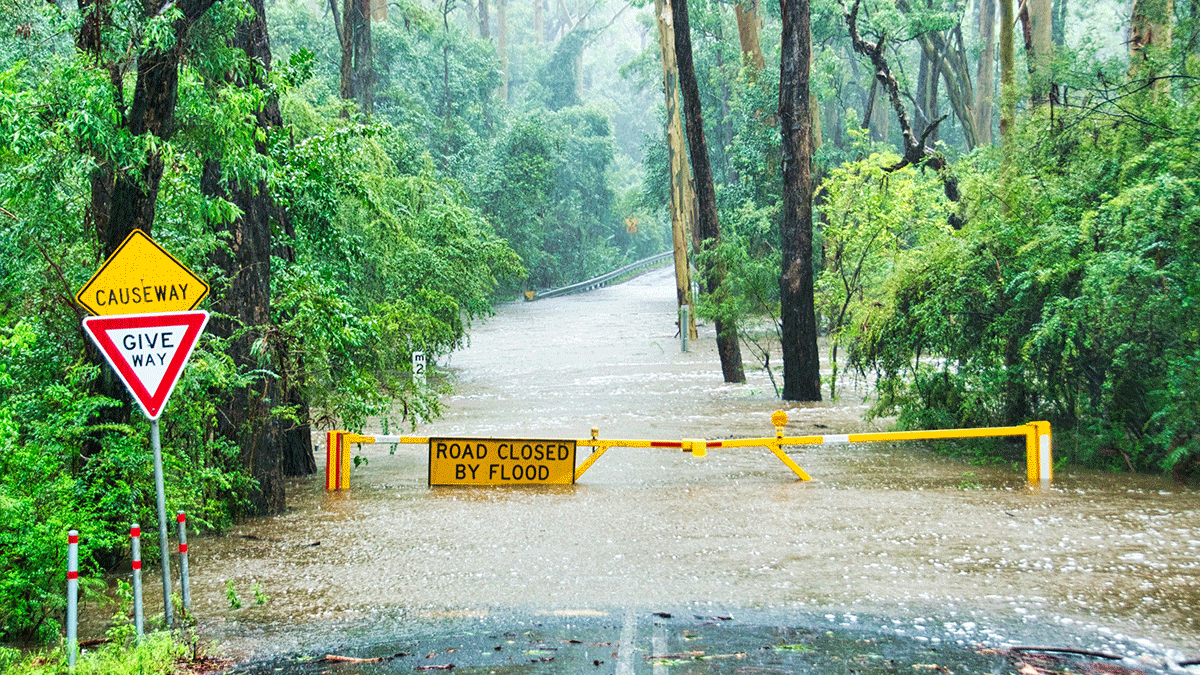Flood events are a seasonal reality and will continue to be experienced in the future with the severity likely to increase – and the losses mounting. So, what does this mean for insurance cover?
The last couple of years have seen catastrophic floods ravage parts of the country – bringing devastation to communities and property owners – and resulting in huge insurance claims and huge losses for insurance companies.
In fact, some of the most devasting floods in our history have occurred in the last decade or so, including the February/March 2022 floods that impacted Southeast Queensland and northern New South Wales.
According to the Insurance Council of Australia (ICA), it was the costliest natural disaster in history, with insured losses topping $6.1 billion across 243,000 claims. The ICA also notes that flood events accounted for more than 54 per cent of losses from declared insurance events in the last five years, and 2022 was a record year for flood losses, with more than 300,000 flood claims totalling more than $7.4 billion.
Considering this, the insurance industry has been assessing the viability of continuing to offer flood cover for properties in high-risk flood zones.
To help our landlord and agent clients come to terms with the evolving insurance landscape, we have answered some common questions relating to flood cover…
Does EBM RentCover offer flood cover?
Since 2015, EBM RentCover has automatically included flood cover in its landlord insurance policies. And, we have done so at a competitive price. This has not changed. While there are now some restrictions on cover for properties located in high-risk flood zones, we recently adapted our flood risk guidelines to provide coverage to more Australian homes and property investors.
What restrictions are on properties in high-risk flood zones?
While we offer flood cover to most properties across Australia, there is a small percentage of properties that are deemed to be in areas that are at a significant risk of experiencing a flood. These properties sit within high-risk flood zones and we are unable to provide policies for properties in these areas.
What does ‘high-risk’ mean?
High-risk refers to properties in flood-prone zones, which is determined by an assessment of the level of flood risk based on flood maps and historical claims data.
Why are these high-risk properties not able to be insured?
Insurance is ultimately designed for the unpredictable, not for events that are likely to occur. Properties in high-risk flood zones have been assessed as likely to flood. This means they are a known risk.
How do I tell if my property is in a high-risk flood zone?
Give the EBM RentCover a call on 1800 661 662 – we can tell you if your property meets our criteria for taking out cover.
Does this impact existing EBM RentCover clients?
The number of properties that we no longer offer insurance on is less than 1 per cent. If your property is impacted, we will let you know.
Is anything else being done to support those who have properties in high-risk flood zones?
The availability and affordability of insurance for properties is just one of several issues facing flood-prone areas. Governments at all levels, the property industry, building and construction industry, emergency services, and insurance industry are looking at these issues and how to address them in a sustainable way. Several different factors, including where property development can occur, building codes, flood mitigations, resilience and insurance gaps are being reviewed.
What tips do you have for looking after property in flood-prone zones?
With cover restricted in high-risk flood zones, it’s more important than ever that property owners do all they can to protect their assets. The Insurance Council of Australia has some tips for protecting properties before, and in the event of, a flood.
If you have any questions about flood cover for your rental property, please get in touch with a member of our Expert Care team – 1800 661 662.
*While we have taken care to ensure the information above is true and correct at the time of publication, changes in circumstances and legislation after the displayed date may impact the accuracy of this article. If you need us we are here, contact 1800 661 662 if you have any questions.
You may also like
View all
If your property, or one you manage, is damaged due to a natural disaster, these FAQs may help you to navigate this time...

Here we explore five summertime risks and offer some tips to help landlords and property managers proactively address them...

With Christmas around the corner, here are five essential property management tips to keep properties safe this festive season...



